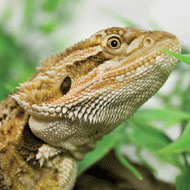Pet reptiles may be "reservoirs" of Campylobacter

Scientists found 7.3 per cent of reptiles tested positive for fetus or hyointestinalis.
Scientists say the risk of Campylobacter infection should be considered by those keeping reptiles as companion animals.
Research published in the Veterinary Record (Vol 174 No 19) suggests pet reptiles could be potential reservoirs of Campylobacter fetus and C hyointestinalis - and therefore may be a source of human infection.
Scientists from the University of Padua, Italy, collected 109 cloacal swabs from captive reptiles during 2011. Samples were taken from Chelonians, lizards and snakes kept in a zoo and a further 67 animals from private households in Northern Italy.
According to the report in Vet Record, 7.3 per cent of reptiles tested positive for the C fetus sub-species fetus, or C hyointestinalis sub-species hyointestinalis. All snakes tested negative.
These species are known to be pathogenic to people, and C fetus is reported to cause gastroenteritis, septicaemia and disseminated infections.
The report states that C hyointestinalis has been isolated from humans and animals and is known to cause gastroenteritis and septicaemia in humans.
Scientists say more research is needed to determine the distribution of the Campylobacter species, the rate of excretion in reptiles and the risk to humans.
To read the report, see Veterinary Record May 10, 2014, Vol 174 No 19, pp.479, Pet Reptiles as potential reservoirs of Campylobacter species with zoonotic potential



 HMRC has invited feedback to its communications regarding the employment status of locum vets and vet nurses.
HMRC has invited feedback to its communications regarding the employment status of locum vets and vet nurses.